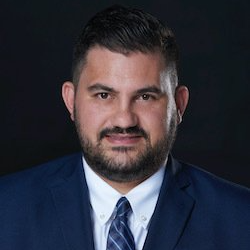Hanlon Law Can Be Fun For Anyone
Table of ContentsThe 45-Second Trick For Hanlon LawHanlon Law for BeginnersMore About Hanlon LawThe smart Trick of Hanlon Law That Nobody is Talking About
When a defendant goes on trial for supposedly committing a crime, a prosecutor should develop that the accused is guilty of the crime beyond an affordable uncertainty. At the exact same time, the criminal offender is qualified to offer a defense and may do so with a selection of ways. The accused may attempt to poke openings in the prosecutor's instance, say that another individual dedicated the criminal activity, or argue that he or she did devote the crime however had a legal as well as sensible defense for doing so.
In some states, the defense of craziness will permit an offender to stay clear of prison but will certainly require that the offender be held in a psychiatric center for treatment. The defense of drunkenness Depends on the concept that the accused can not fulfill all of the elements of the criminal offense because he or she did not recognize what he or she was doing (orlando florida laywer).

Some Of Hanlon Law
Mistake of law applies when a criminal defendant believed his or her actions were lawful. This defense applies in just very limited circumstances. Protection (or protection of an additional) Duress Need An additional category of defenses applies when the defendant committed the crime yet suggests that he or she was warranted in doing so.
An offender may say, for example, that he did shoot a trespasser but did so in self-defense since the trespasser was endangering him with a knife. Under a protection of pressure, the criminal offender says that she or he just committed the criminal offense since she or he was compelled to do so by another person.
Under a necessity defense, the criminal defendant may say that he or she dedicated the criminal offense in order to protect against a more considerable damage. The defendant may compete that it was required for him to take a cars and truck in order to chase after down one more individual who was intimidating to utilize an explosive tool.
Initially, the accused might argue that no crime occurred due to the protection of consent. As an example, the defendant might say that although sexual relations took place, it was not rape because there was authorization. Likewise, he may say that there was no assault due to the fact that the sufferer consented to the damage.
The Greatest Guide To Hanlon Law
Third, the accused might argue entrapment. Entrapment takes place when the federal government causes an individual to dedicate the criminal activity as well as after that attempts to penalize the person for it. The defendant might suggest that no criminal offense would have taken place however, for the government's inducement, as well as she or he ought to as a result not be called to account.
To effectively convict a criminal offender, the government has to prove the accused was guilty past a practical doubt. One of the most usual defenses criminal accuseds might increase can be organized right into two basic classifications initially, denying the offender did anything (including the alibi protection), as well as second, recognizing the offender did the act yet just under extenuating conditions (including protection, madness, entrapment, and intoxication defenses).
For instance, if an accused is accused of committing a break-in but can prove that he went to the dental practitioner or conference with a technician while of the criminal activity, he may achieve success in his alibi protection (Sex Crimes in Orlando FL). Self-defense was the key inquiry elevated in the current George Zimmerman situation. https://hanlonlaw43975.theisblog.com/.
The craziness protection is an exceptionally intricate protection, yet it is normally based on the suggestion that punishment is only warranted if the defendant is qualified of managing their habits. Because some of the psychologically sick are not efficient in distinguishing right from incorrect, the madness protection avoids them from being criminally responsible.
The Hanlon Law PDFs
If, nevertheless, a jury believes that the accused was predisposed to commit the crime anyway, this protection will not be effective. In Tennessee, volunteer intoxication does not excuse criminal activities. A protection of spontaneous drunkenness might prove effective. If you've been charged of a criminal activity, speak to a qualified criminal defense lawyer to aid you consider your finest program of activity as well as obtain the very best feasible outcome in your situation.
Below are a handful of ways in which an accused could insist a successful defense. To found guilty a criminal accused, the prosecutor has to confirm the defendant guilty past a practical doubt.
Yet there are many other kinds of defenses, from "I didn't do it" to "I did it, yet I was also drunk to recognize what I was doing."All individuals implicated of a criminal offense are lawfully assumed to be innocent till they are founded guilty, either in a trial or as a result of pleading guilty.
If the district attorney can't persuade the court that the accused is guilty, the defendant goes free. The presumption of virtue, coupled with the More Help reality that the prosecutor should verify the accused's shame past an affordable uncertainty, makes it difficult for the government to place individuals behind bars. The prosecutor should persuade the court or jury listening to the instance that the defendant is guilty "beyond a reasonable doubt." This standard is really hard to meet.